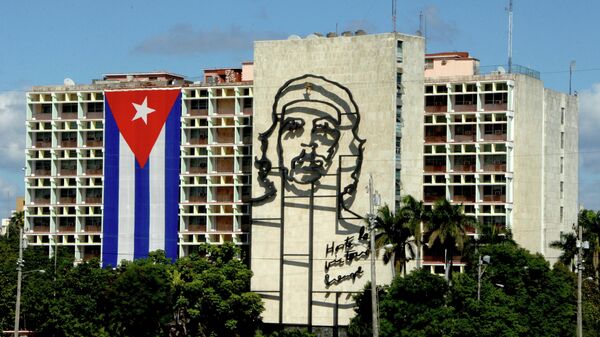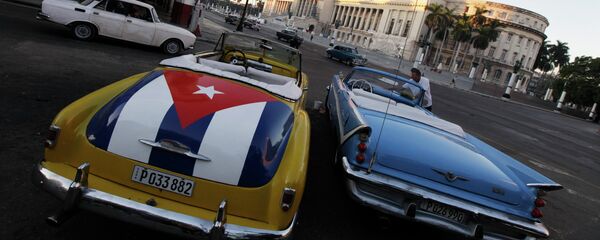"We will end an outdated approach that for decades has failed to advance our interests and instead we will begin to normalize relations between our two countries … These 50 years have shown that isolation has not worked," stated President Obama during his nationally broadcasted speech.
"50 years have shown that isolation hasn’t worked. It’s time for a new approach." —President Obama #CubaPolicy http://t.co/Qrzp5zODZk
— The White House (@WhiteHouse) 17 декабря 2014
So, how did it all begin? The relations between the two states had sharply deteriorated after Cuban revolutionaries led by Fidel Castro overthrew the dictatorship of Fulgencio Batista y Zaldívar in 1959.
The new Cuban government started forming economic and political relations with Moscow, then a dominant geopolitical rival of Washington. At the same time, the new regime nationalized US-owned properties and raised taxes on American imports. In response to Castro's reforms, the United States imposed a trade embargo on Havana including travel restrictions in the early 1960s and terminated diplomatic ties with the young communist state.
Over the years, the situation had gradually deteriorated. The CIA's numerous futile attempts to assassinate prominent Cuban leader Fidel Castro, as well as the infamous Cuban missile crisis in 1962 had only added fuel to the fire.
Although former US President Bill Clinton eased controls on humanitarian and medical shipments to Cuba in 1998 and allowed Cuban Americans to send up to $1,200 per year to their relatives, five years later President George W. Bush reinforced draconian sanctions against Havana.
Only in 2009 did Barack Obama lift restrictions on travelling and sending money to Carribean state.
Since 1992 the United Nations General Assembly has urged the United States to ease the Cuban embargo, labeling the sanctions policy against the state as a relic of the Cold War. Citing humanitarian issues the UN pointed to the deplorable conditions the Cuban population was living in. An overwhelming majority of the UN member states repeatedly approved resolutions condemning the Cuban embargo. However, the US was not rushing to lift the restrictions and turned a deaf ear to the international plea. In 2013 a record number of nations – 188 – called on Washington to abolish the embargo in the UN.
Meanwhile, the draconian restrictions imposed by Washington neither undermined the Cuban regime nor demoralized the population of the small independent state. After years of ineffective attempts to overthrow Castro's leadership, the US acknowledged the failure of its sanctions approach in 2014.
President Obama speaks with President Raúl Castro of Cuba before announcing his #CubaPolicy: http://t.co/ZeORP4H0jr pic.twitter.com/dJMxK2IAor
— The White House (@WhiteHouse) 17 декабря 2014
The International Business Times elaborates that the new US-Cuban deal will result in "an easing of restrictions on remittances, travel and banking relations with Cuba," as well as the liberation of political prisoners. The deal will obviously boost commercial exchange between the two countries and bolster Cuba's tourism business and private sector.
RT to share how President Obama is charting a new course in U.S.-Cuba relations: http://t.co/ZeORP4H0jr #CubaPolicy pic.twitter.com/pKfE4Cv0tr
— The White House (@WhiteHouse) 17 декабря 2014
For instance, Americans will be allowed to purchase more Cuban alcohol and tobacco on US soil, the media outlet notes. American agriculture firms will be able to ship more corn, soy, wheat, poultry and pork to the country. Limits on remittances to Cubans will be increased from $500 to $2,000 per quarter.
"The Cubans believe that their control of the economy is as important as their control of the political system. They go together," says Sebastian Arcos, associate director of the Cuban Research Institute at Florida International University, as quoted by International Business Times.





